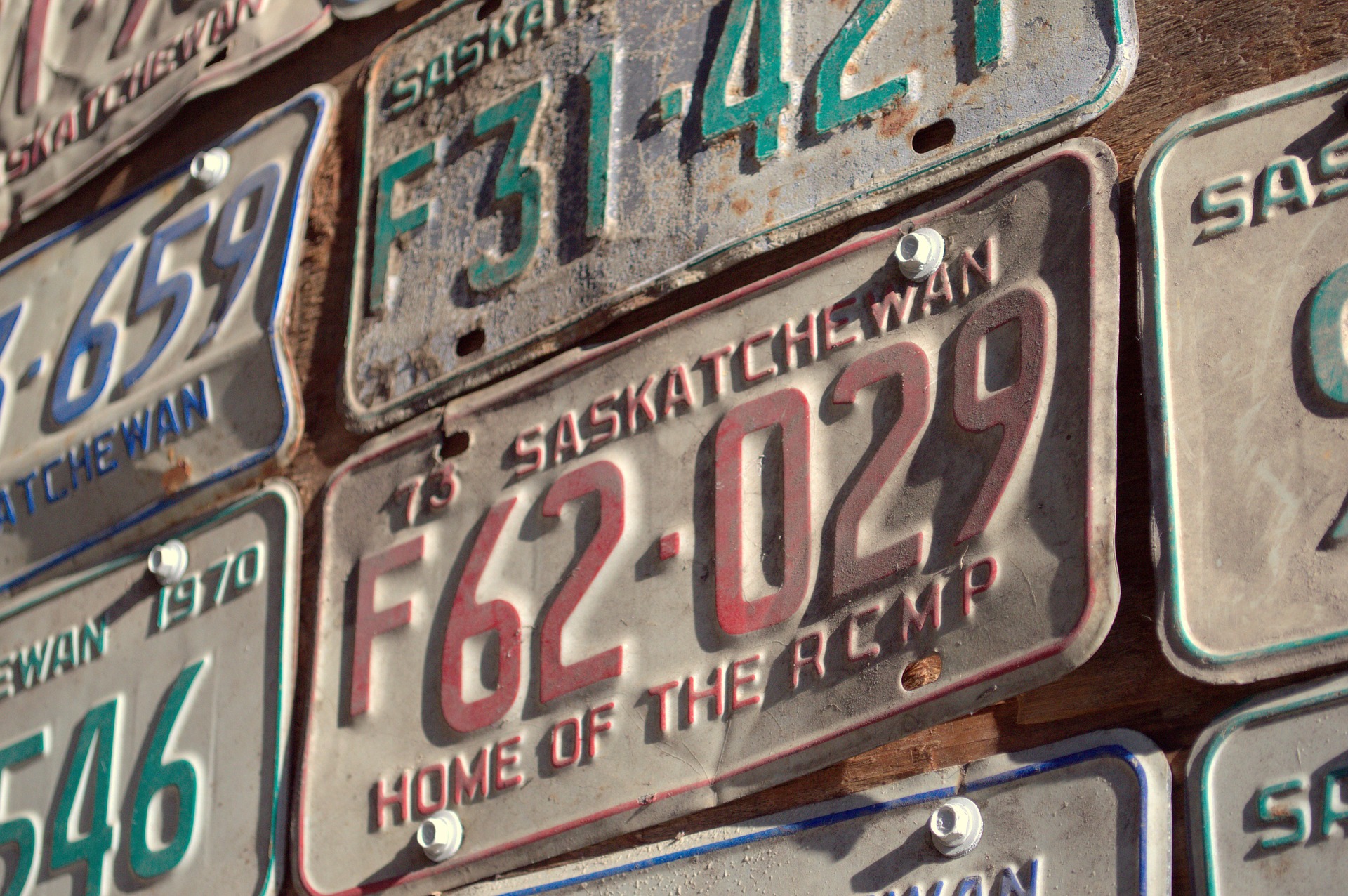Libyan Military - Libyan army soldiers stand at attention in front of an audience including the prime minister, the commander of the Turkish training mission and other prominent leaders at a graduation ceremony in Tripoli, Libya on February 8, 2022. (AP Photo)
Libyan pro-military leaders and revolutionaries on Saturday condemned the election of Fathi Bashaghi as head of a new government, a move that risks sparking a new power struggle in the war-torn country.
Libyan Military
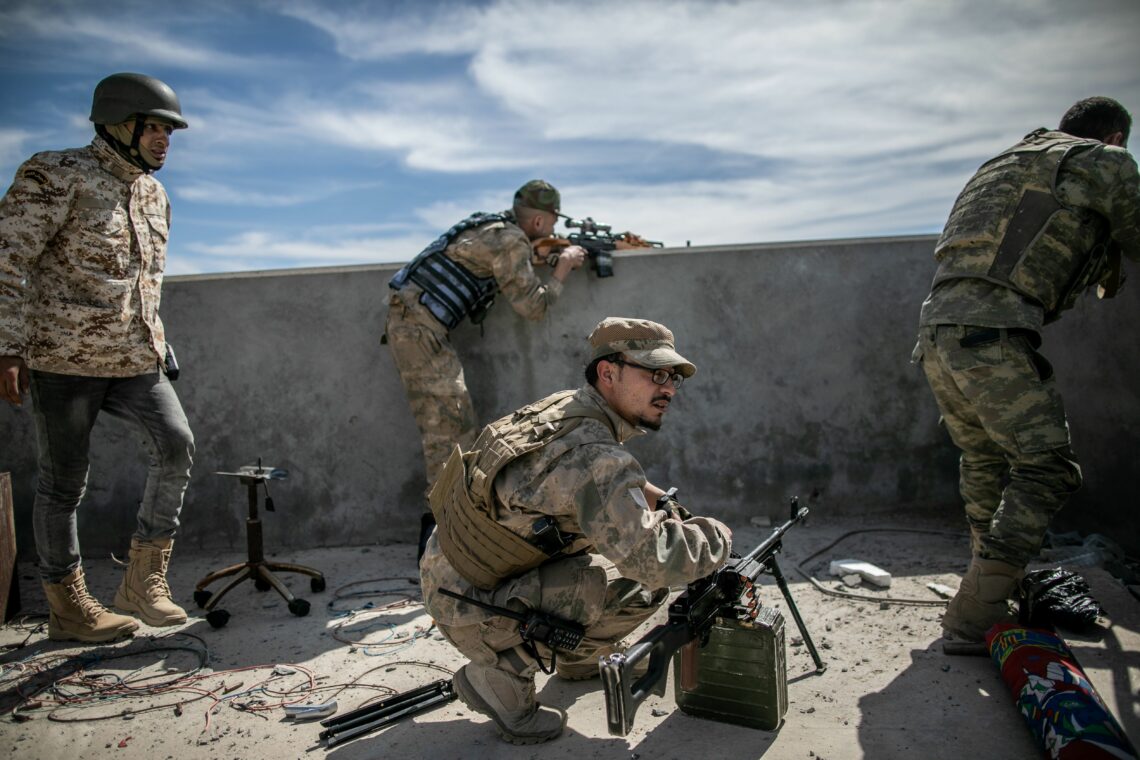
In a statement read in the Martyrs' Square in the capital Tripoli, they said that the supporting forces condemn the "absurd situation that is contrary to the results of the political dialogue platform and wants the country to enter a new phase of transition."
Egypt Readies To Intervene In Libya As Hifter Struggles
According to them, the decisions taken by the House of Representatives (HoR) in its last meeting in Tobruk "did not follow fair and transparent procedures."
They expressed "strong support for parliamentary elections, a constitutional referendum and presidential elections as soon as possible," the statement said.
On the other hand, the head of the Supreme Council of State (SSC), Khalid al-Mishri, said that the appointment of Bashagi instead of Dbeiba was based on the text after a "rare agreement" between the parliamentary bodies on Saturday.
However, the incumbent Prime Minister, Abdul Hamid Dbeiba, rejected the move and promised to remain in power until the national elections are held.
Libya's Un Backed Government Receives Military Hardware In Spite Of Arms Embargo
Bashaga and Dbeiba enjoy the support of rival armed groups in the Libyan capital. The position of the United Nations and major powers will determine the outcome of the transitional government's struggle after many years of foreign countries being involved in the conflict. The United Nations continued to support Dbeiba after the vote in the House of Representatives. However, the United Nations said on Friday that Secretary-General António Guterres considered the decision of the parliament to appoint Bashaga, as well as the decision of the parliament, as well as the HCS, to plan a revised electoral process.
Stephanie Williams, the UN Special Adviser on Libya, said free and fair elections in Libya should be held "as soon as possible" when she met with Dbeiba and Bashaga.
Referendums in Libya were scheduled for December 24 but were delayed due to disagreements between political rivals. A new date for voting has not yet been agreed.
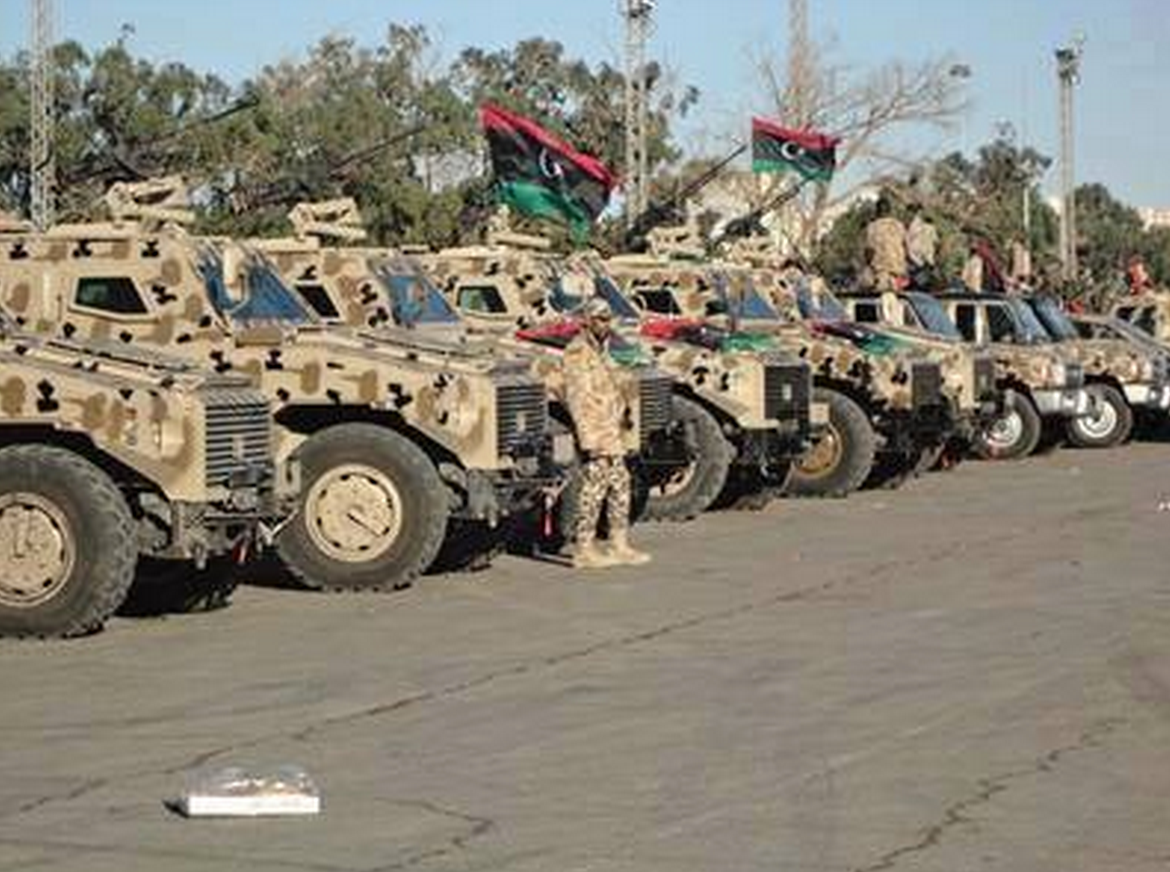
Libyans hope the election will help end the armed conflict that has plagued the oil-rich country for years.
Fierce Clashes Erupt Outside Libyan Capital Tripoli
You can opt out at any time. By registering, you agree to our Terms and Conditions and Privacy Policy. This site is protected by reCAPTCHA and Google's Privacy Policy and Terms of Use apply. The Libyan army announced that militias linked to rebel General Khalifa Haftar fired six Grad missiles at its headquarters west of the northern city of Sirte in the second breach of the truce in three days.
Libyan army spokesman Colonel Mohammed Kununu said in a statement: "At 00:06 (22:06 GMT on Tuesday evening), our forces detected an expected violation of the ceasefire declaration, which is the second of its kind in less than at 72."
He has explained that the Libyan army is fully prepared and is waiting for instructions from the Supreme Leader Fayez al-Sarraj to deal with and respond to fire sources at the right time and place. On August 27, the Libyan army announced the first ceasefire violation when Haftar's militia fired more than 12 missiles at a Libyan army base west of Sirte.
The spokesman of Haftar's militia, Ahmed Al-Mismari, has said that the ceasefire has not been violated, saying that the purpose of the Libyan government's statement is to hide the protests in Tripoli.
The Rise Of Libya's Renegade General: How Haftar Built His War Machine
The ceasefire was reached on August 21, according to two statements by the opposition Presidential Council of the Libyan government and the Tobruk House of Representatives in support of Haftar, who is fighting the Government of National Accord (GNA) led by al-Sarraj legitimately and power. in a country rich in oil.
READ: Why is the GNA defending the Lockerbie case despite being close to a verdict of not guilty?
. If the images belong to us, this license also applies to them. What does it mean? For other permits, please contact us. Overwhelmed and overpowered, Libya is struggling to rebuild its shattered army: Proportion Despite aid from world powers, rebuilding the battered army has been slow.

Soldiers march during a graduation ceremony for conscripts into the Libyan army in Tripoli, the capital, January 16. The army, which has suffered years of Muammar Gaddafi's rule and NATO attacks, faces many challenges as it tries to rebuild. Ismail Zitouni/Reuters/Landow hide quote
Is Attack In Libya Kills 3 Security Personnel: Ministry
Soldiers march during a graduation ceremony for conscripts into the Libyan army in Tripoli, the capital, January 16. The army, which has suffered years of Muammar Gaddafi's rule and NATO attacks, faces many challenges as it tries to rebuild.
Another day, a shootout broke out in the west of Tripoli, the capital of Libya, a war between two families. It takes hours to build; people run to hide. No one interferes, even though the Libyan military base is only a mile away.
This military camp in the town of Zawiya is housing 230 youths from across the North African nation as part of the government's efforts to address the country's biggest problem: the non-existent security forces.
Three years after the fall of dictator Muammar Gaddafi, Libya is still in crisis, a country rich in oil but insecure. Many areas are still under the weak control of local warlords and militias.
Egypt Readies Army To Intervene In Libya 'if Necessary'
The creation of a real national army would help solve the problem. Although world powers are trying to help with training and equipment, progress is slow.
This is about 230 people undergoing military training in a camp near Tripoli. On the day of the visit, gunshots could be heard about a mile away. No one intervened. Leyla Fadel/ hide quote
Gaddafi was worried that the same forces he used to seize power in the country 45 years ago would eventually overthrow him. So he bombed a military that was further damaged by the 2011 NATO attack that brought down his regime. And then the arsenals were looted, and a flood of weapons and heavy weapons poured across Libya.
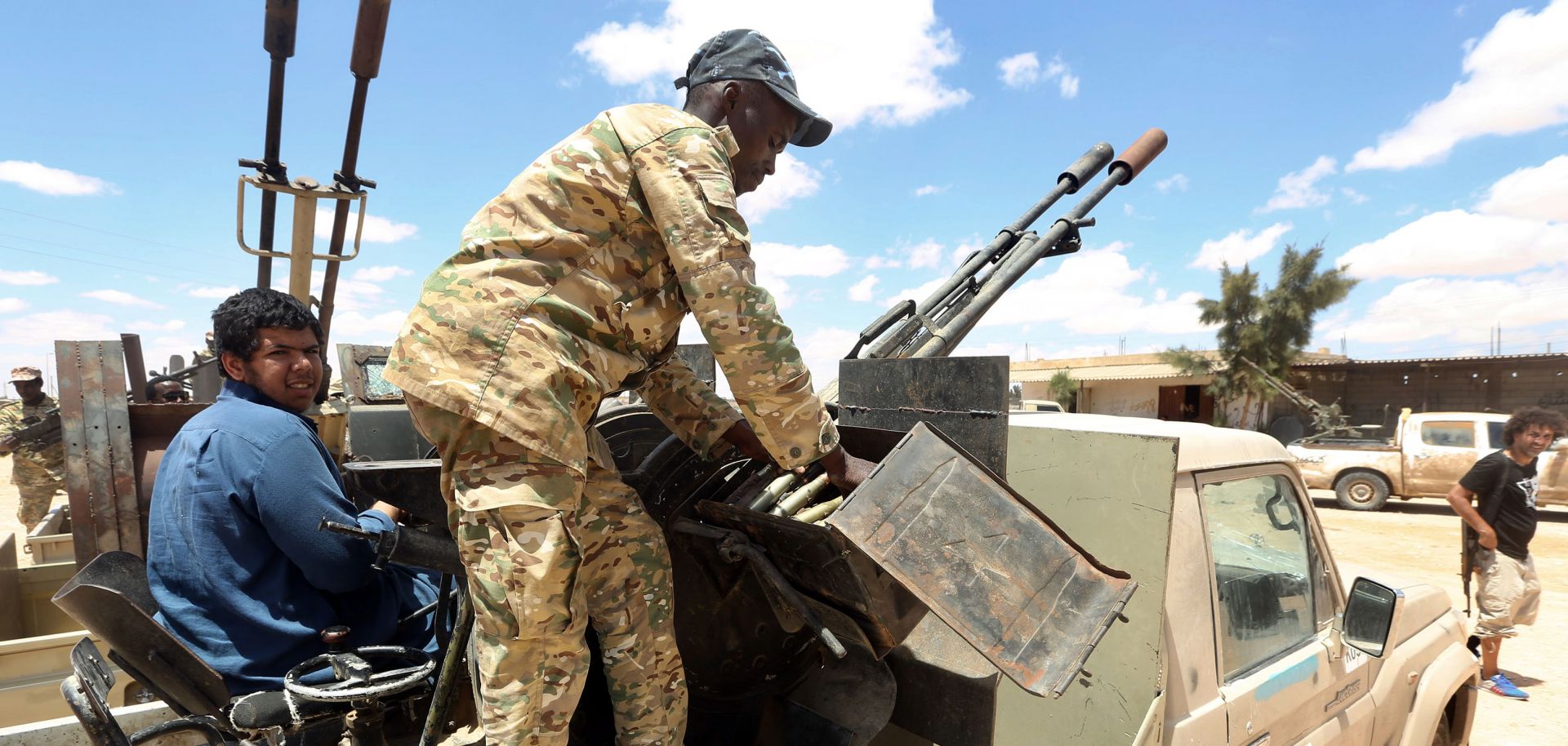
If you look at the army now, something is missing. There are many old officers, who defected from Gaddafi's army. There are those employed who have not reached their youth. But there is no one among them.
Darfur Rebels Building Up Military Strength In Libya
During an interview in the office of the chief of staff in Tripoli, spokesman Colonel Ali al-Shehi lays out the restrictions.
"The biggest problem is the massive supply of weapons," he says. "And there is not much unity, so there are forces that are loyal to tribes or districts, and it is difficult to break them."
After Gaddafi's death, security passed to the so-called revolutionaries who fought against him. The government pays them even when it tries to destroy them. But the militants do not trust the authorities to share power.
At the same time, the loyalty of the militia was divided. Some respond to the government, others to individual MPs from the opposition. Others are loyal only to the tribe, the city, and themselves.
Libya Official: Renewed Militia Clashes In Tripoli Kill 13
It is not that Libya is a failed country, analysts and Libyan officials say, it is that the government has not yet emerged.
The elected parliament has done little to build democracy on the ruins of dictatorship. Just last week, Libyans elected a committee to write a constitution.
The government pays the militants out of fear and necessity, and maintains some influence over them. But this did not stop armed groups from regularly entering the National Assembly with weapons and besieging ministries. In the summer, the prime minister was kidnapped for several hours, and suspected militants are among many on the government's payroll.
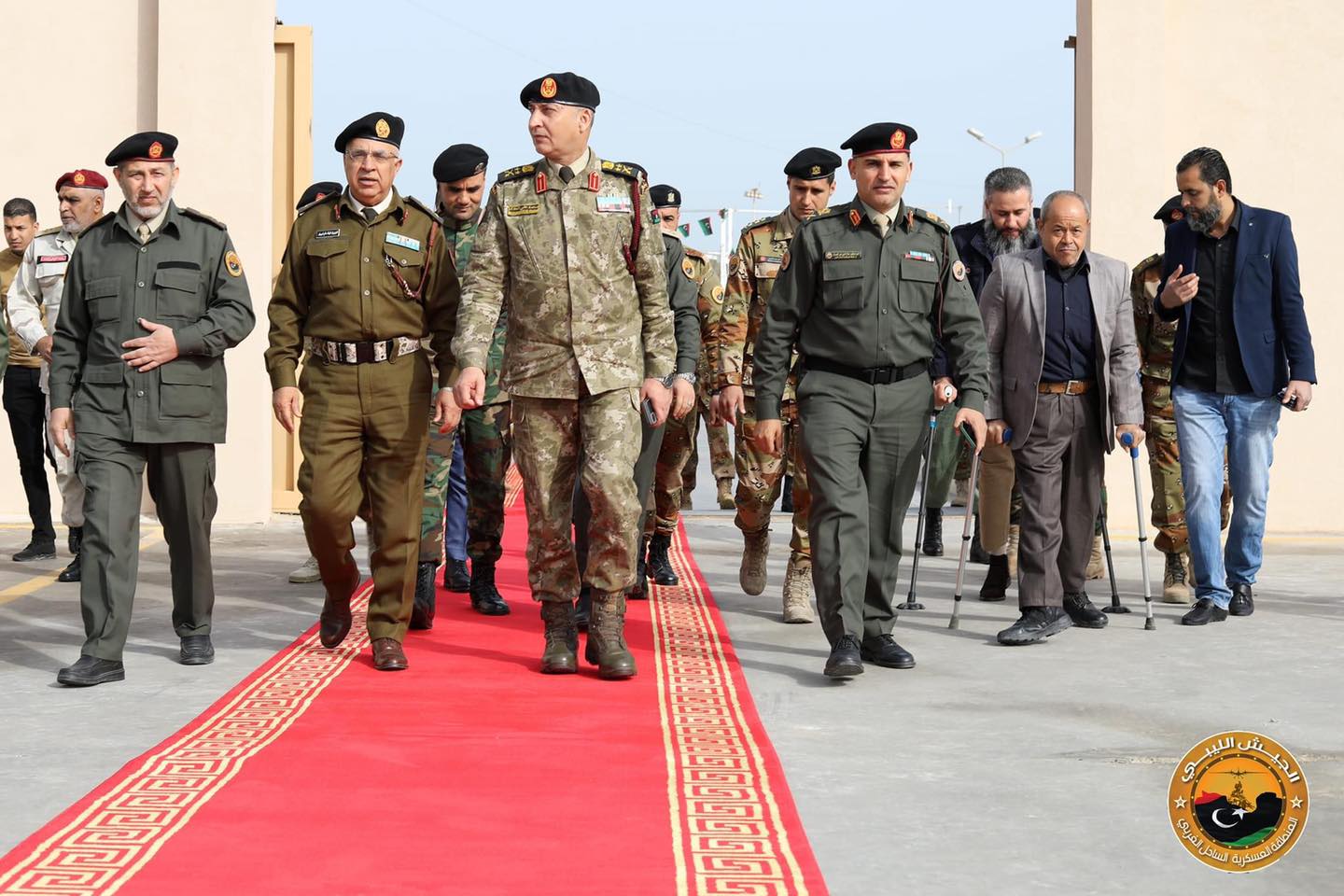
A member of a heavily armed militia group with weapons in Freedom Square in Benghazi, Libya on February 18. Most of the militants are paid by the government. Esam Omran Al-Fetori/Reuters/Landov hide caption
Views: Libya, Militias, Divisions, And The Way Forward
A member of a heavily armed militia group with weapons in Freedom Square in Benghazi, Libya on February 18. Most of the militants are paid by the government.
When asked how big the Libyan army is now, Shehi replied that he did not know. The ministry pays at least 180,000 people, but most of those salaries belong to Gaddafi's ex-soldiers; The actual number is only a fraction of these forces.
Further down the corridor from Shekhi's office, the army is talking to British advisers - apparently a military liaison - about preparations.
A video is shown on TV showing the militants wearing ill-fitting military uniforms and armed with rocket-propelled grenades. These are pictures from local television cameras that criticize the militants. It had been raided the night before, looted and shot with RPGs. The entire incident was captured by CCTV cameras and broadcast live. Hardly anyone is arrested.
Libya Turns The Page
It's the same story with the police, who are ill-equipped and can't compete with guns on the streets. Libyans are worried


